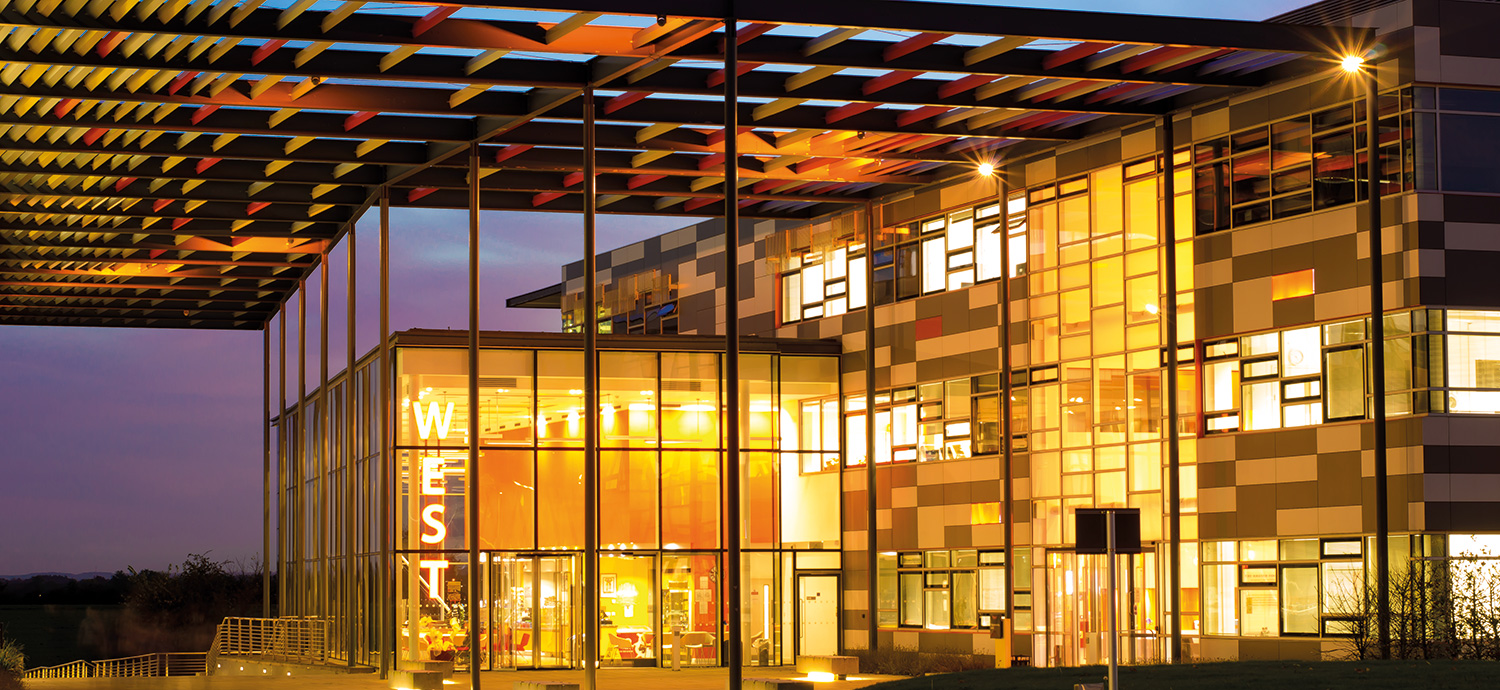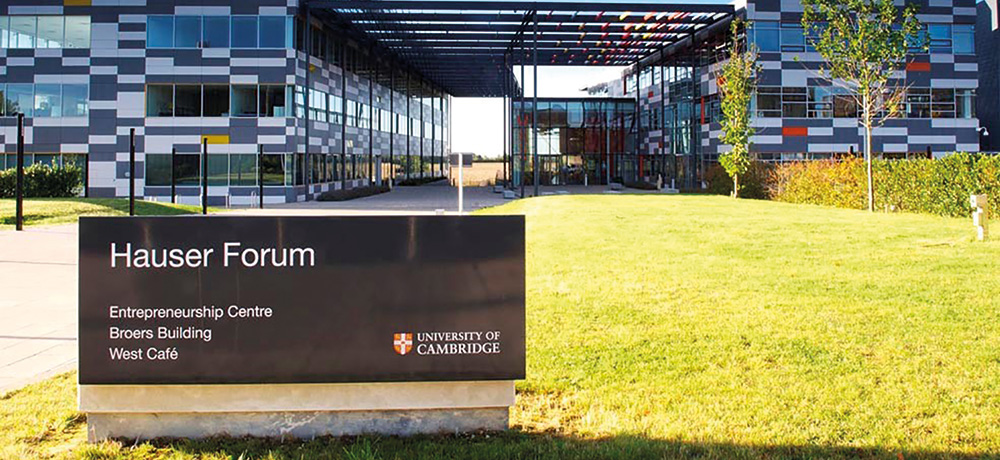
Resilience & adaptablitity: Keys to the cluster’s success
Posted on Oct 4, 2020 by Cambridge Catalyst
John Gourd, CEO of Cambridge Network, looks at how Cambridge has proved its adaptability in the face of unprecedented challenges
Pictured The home of Cambridge Network, The Hauser Forum © Cambridge Enterprise.
Whether it is the incorporation of AI into drug discovery or the use of enhanced video imaging in agritech, Cambridge companies have been at the forefront of melding technologies to meet the demands of a global market since the earliest days of software and hardware development.
In fact, the Cambridge Phenomenon and the success of the local ecosystem has been built upon the foundations of resilience and adaptability. And it is no surprise that Cambridge Network members have risen to the challenges the pandemic placed upon us, and not necessarily just for their own financial gain.
 The Cambridge Phenomenon and the success of the local ecosystem has been built upon the foundations of resilience and adaptability
The Cambridge Phenomenon and the success of the local ecosystem has been built upon the foundations of resilience and adaptability
A few examples include:
- AstraZeneca’s work with the University of Oxford to develop a Covid-19 vaccine.
- TTP and other local technology
consultancies participating in the
nationwide Ventilator Challenge. - Marshall’s work on reinventing the iron lung.
- EG Technology, which offered medical device developers support from its team of engineers.
- Countless cases of altruism, with donations of equipment and funds to the NHS and other organisations
As a Network, we also had to drastically adapt our business model. Because lockdown meant we were no longer able to host face-to-face events, training sessions or jobs fairs, we quickly learnt how to move all this content online. This was achieved in a matter of days. But it wasn’t just the delivery method that changed – our audience’s needs changed, too. A fundamental shift took place and our members’ focus turned to the new challenges. Members needed to know how to run teams and look after their mental health when everyone was working remotely.

They needed to understand how to communicate with their main customers and stakeholders in a crisis; how to interview, recruit, onboard and more via video.
We decided to make most of our content free, because the challenges in the local area applied to all businesses, whether they were members or not.
Over the course of the past few months, the Network team has run more than 50 webinars, attracting almost 3,000 participants from around 500 different organisations. Separately, we’ve also hosted three successful online jobs and careers fairs since March.
As we continue the slow steps out of lockdown and a gradual return to the office, our members are asking for additional help. How do they manage the return to the office, both physically and mentally? How can we reconnect effectively with our customers? We continue to offer hour-long sessions on these and a diverse range of other subjects, all delivered virtually with the help of our expert members.
We had already taken most of our CPD-accredited training online and the appetite for courses hasn’t diminished. Just last week we also launched CN eLearning, a suite of short online training courses that enable companies to train/ upskill and develop their employees while they work at home.
However, we are aware that nothing can fully replicate the pleasure of meeting a business contact face-to-face or the serendipitous joy when someone with a problem unexpectedly meets someone with a solution – this is when networking performs at its best. But until then, we’ll do our best to recreate these experiences online.
Cambridge is an exemplar of the Darwinist aphorism: “It is not the strongest of the species that survives, nor the most intelligent that survives. It is the one that is most adaptable to change.”
This article first featured in Issue 7 of Cambridge Catalyst.



